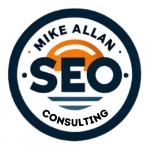“Crawled – currently not indexed” is one of the common issues I encounter with clients. If you’re seeing this in Google Search Console, don’t panic. There are several reasons this might happen, and many are fixable. Let’s dive into the most common reasons and what you can do to improve your chances of getting indexed.
1. Low-Quality Content
Google aims to provide users with the most relevant and high-quality content. If your page content is thin, lacking depth, or not providing substantial value, Google might decide not to index it. Ensure your content is comprehensive, informative, and answers the user’s search intent.
2. Duplicate Content
Content similar to other site pages or online pages can lead to indexing issues. Google avoids indexing duplicate content to prevent redundancy in search results. Use tools to check for duplicate content and make necessary adjustments to ensure your page offers unique value.
3. Technical Issues
Technical issues such as slow loading times, improper use of canonical tags, or crawl errors can prevent Google from indexing your page. Regularly audit your site for technical issues and ensure it meets Google’s technical requirements.
4. Insufficient Internal Links
Google often deems pages with few or no internal links less important. Make sure your page is well-linked within your website. This not only helps with indexing but also improves user navigation.
5. New or Recently Updated Content
Newly published or recently updated content might take some time to be indexed. Google could still be evaluating the relevance and quality of the content. Be patient and give it some time while continuously improving your site’s overall SEO.
6. Poor User Experience
A poor user experience, such as excessive ads, intrusive pop-ups, or difficult navigation, can deter Google from indexing a page. Focus on providing a clean, user-friendly experience to increase the likelihood of indexing.
7. Crawl Budget Limitations
If your site is large, Google allocates a certain crawl budget, which might not cover all pages. Prioritize your most important pages and ensure they are linked from high-traffic areas of your site to increase the chance of being indexed.
8. Robots.txt or Noindex Tags
While unlikely in the “Crawled – currently not indexed” scenario, incorrect use of robots.txt or noindex tags can affect other pages on your site. Double-check your settings to ensure they aren’t inadvertently blocking important content.
9. Lack of External Backlinks
Pages with few or no external backlinks might be seen as less authoritative by Google. Building high-quality backlinks can enhance your page’s authority and increase its chances of being indexed.
Seeing “Crawled – currently not indexed” can be frustrating, but understanding the reasons behind it can help you take actionable steps to improve your chances of getting indexed. Focus on creating high-quality, unique content, fixing technical issues, and improving user experience. Over time, these efforts will enhance your site’s visibility in search results.
For more insights and personalized SEO advice, feel free to reach out. Let’s get your pages indexed and ranking!
Need help with your SEO strategy? Contact me today to ensure your website performs at its best and effectively reaches your target audience.


